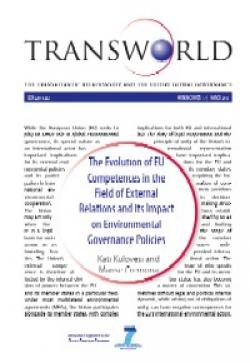The Evolution of EU Competences in the Field of External Relations and its Impact on Environmental Governance Policies
While the European Union (EU) seeks to play an active role in global environmental governance, its special nature as an international actor has important implications for its external environmental policies and its participation in international environmental cooperation. The Union may act only when there is a legal basis for such action in its founding Treaties. The Union's external competence is therefore affected by the internal division of powers between the EU and its member states in a particular field. Under most multilateral environmental agreements (MEAs), the Union participates alongside its member states, with complex implications for both EU and international law. The duty of loyal cooperation and the principle of unity of the Union's international representation have important implications for the EU and its member states, requiring the formation of common positions in decision-making structures established by MEAs and limiting the scope of the member states' independent international action. The issue of who speaks for the EU and its member states has also become a matter of contention. This sometimes difficult legal and political internal dynamic, while arising out of obligations of unity, can have negative consequences for the EU's international environmental action.
Paper produced within the framework of the IAI project Transworld.
-
Details
Roma, Istituto affari internazionali, 2013, 17 p. -
Issue
17
Introduction
1. EU Competences in the Field of External Relations: Focus on Environmental Issues
1.1. Evolution of EU Competences in Environmental Matters
1.2. EU External Environmental Competence
2. The Impact of Competences on Environmental Governance Policies: EU Participation in International Environmental Cooperation
2.1. The EU in MEA Negotiations
2.2. Legal Basis for Adopting EU Negotiating Positions
Conclusions
References
Topic
Tag
Related content
-
Publication23/03/2014
The EU, the US and Global Climate Governance
leggi tutto -
Ricerca27/12/2013
Transworld - Redefining the transatlantic relationship and its role in shaping global governance
leggi tutto



